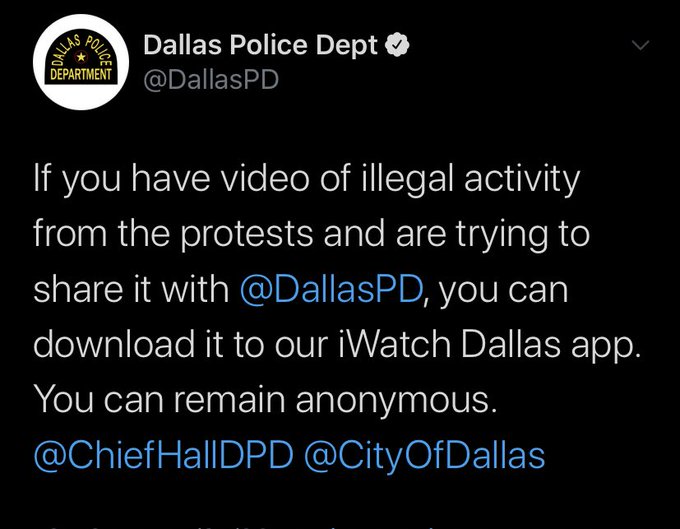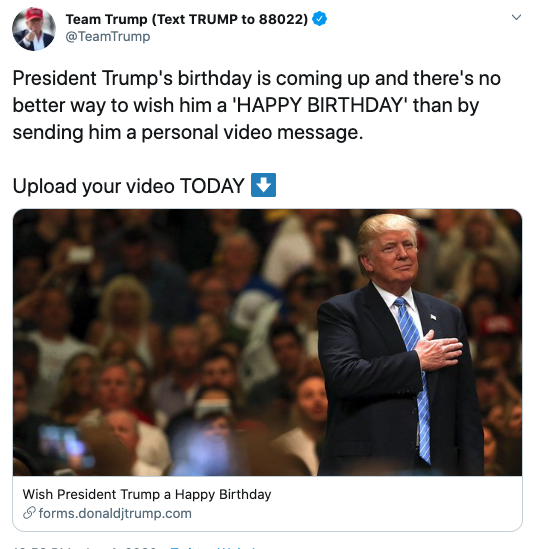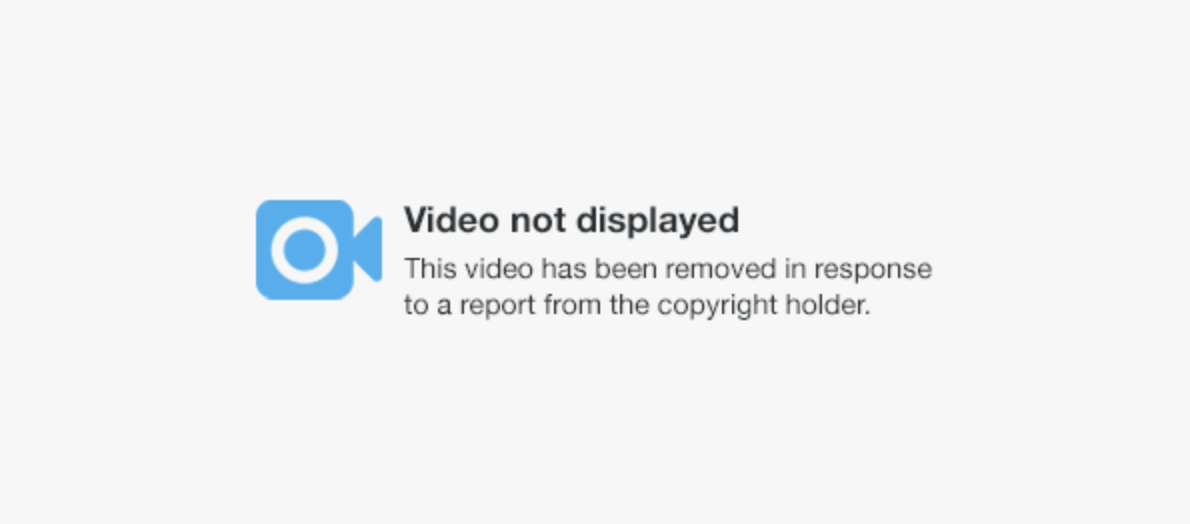How K-pop fans are weaponizing the internet for Black Lives Matter
How K-pop fans are weaponizing the internet for Black Lives Matter
/cdn.vox-cdn.com/uploads/chorus_image/image/66906610/1207757472.jpg.0.jpg)
It’s been a good week in the media for K-pop fans. After spending days urging social media support for the Black Lives Matter movement, fans around the world went viral and gained mainstream media attention for their use of K-pop fancams to jam police apps.
The K-pop fandom is just one of the groups online making ingenious use of social platforms to aid in the ongoing wave of protests against police brutality in the wake of the killing of George Floyd. Across the internet, supporters of Black Lives Matter are weaponizing tweets, posts, and hashtags to spread information, protect protesters, and derail racist rhetoric.
Here are a few examples of internet and social media tools playing unexpected roles in the protests.
---------------------------------------------------------------------------------------------------------------
K-pop fancams
For those who are new to K-pop fandom, a fancam is a video closeup filmed by an audience member during a live performance by a K-pop idol group. (However, fan-made edits of preexisting K-pop footage increasingly also fall under the umbrella term “fancam,” and while many fans take pains to distinguish between fancams and edits, the average outsider probably won’t recognize a difference.) Fancams usually focus on a single specific member of the group as they sing and dance, and they’re wildly popular on Twitter as a way to advertise favorite groups and celebrate a favorite idol’s talent and excellence.
---------------------------------------------------------------------------------------------------------------
Fancams have also been the bane of many Twitter users, however, who often find their own viral threads hijacked by users posting fancams to capitalize upon the thread’s popularity. A fancam, then, is sort of a shorthand reference for everything other social media users find annoying about highly visible fandoms: their obsessive, single-minded focus on the thing they like when you’re trying to discuss something else.
Which is all to say that it was a big deal when K-pop fans came up with the brilliant idea to do their usual fancam-spam thing — only this time, they aimed it at cops:
stan twitter nows your chance to use them fancams for GOOD please twitter.com/7soulsmap/stat…
The Dallas Police Department’s iWatch Dallas app is a localized version of the app CloseWatch, created by a company called Zeteky to allow users to submit tips in real time to law enforcement. “It’s our firm belief that if every phone had Closewatch3, the world could be a safer place,” the company’s website states.
After the Dallas police force tweeted a request for the public to submit tips to them through the app during the protests, a viral tweet called for K-pop stans to submit fancams instead in response. The fancam spam would theoretically prevent police from seeing real local videos that might put protesters in danger.
As the idea spread, fans flooded the app, going viral and effectively temporarily disabling the app in the process.
Due to technical difficulties iWatch Dallas app will be down temporarily.
To explain: Dallas PD referred people to a snitching app, and kpop Twitter flooded it with fancams until the app broke. twitter.com/ngelwy/status/…
The work of the K-pop fandom was so popular among other Twitter users that people have begun summoning them to apply their trade to other missions.
And the K-pop fans were quick to respond.
we got your message
K-pop fandom has had its share of internal battles throughout the wave of protests as fans debate how best to show support for issues affecting black citizens, while simultaneously grappling with generalized racism within the fandom and the K-pop industry. But this is also by no means the first time K-pop fandom has rallied behind a political or humanitarian cause, and K-pop fans continued to drum up support for the Black Lives Matter movement in more concrete ways: after news leaked on Saturday that BTS and its studio Big Hit had donated $1 million to the movement’s official charity fund, fans themselves launched a hashtag movement to collectively match the donation, and quickly did so.
i just love the bts fandom so much. it's currently self-organizing through #matchamillion to match the group's $1 million donation twitter.com/charts_k/statu…
The fans also continued to operate systematically when it came to streamlined responses supporting protesters. In addition to shutting down police apps, they led an entirely different trend: Hashtag derailment.
Hashtag derailment
We’ve all clicked on a hashtag and found it to be full of off-topic posts, burying the hashtag’s true meaning. Usually, this cacophony is created by one of two actions: individuals grandstanding in order to chase a viral hashtag for clout, or responding in confusion or outrage to whatever they think the tag is about, generating more confusion and diluting the tag’s original topic.
It’s rarer that a hashtag is derailed on purpose. But white supremacists’ attempts to generate trending tags for the idea that “white lives matter” led K-pop fans to turn that tag against its advocates. Many fans spent days making sure the entire white lives matter hashtag was consumed with fancams, tweets about music, and tweets about people tweeting about music under the tag.
Paradoxically, the virality K-pop fans have gained for this stunt has kept “white lives matter” trending as a topic for days. At one point, Twitter presented it to me as a “K-pop” topic, and even listed the phrase “#WhiteLifeMatter” as a more mainstream “music” topic.
:no_upscale()/cdn.vox-cdn.com/uploads/chorus_asset/file/20019529/Screen_Shot_2020_06_04_at_3.43.58_PM.png)
:no_upscale()/cdn.vox-cdn.com/uploads/chorus_asset/file/20019068/Screen_Shot_2020_06_04_at_11.56.18_AM.png)
Several Twitter users have pointed out that posting with the racist hashtag keeps ensuring that the racist hashtag will continue to trend, which may be undermining the point that K-pop fans originally wanted to make. On Instagram, although the “whitelivesmatter” tag is completely swamped with K-pop and anime references, white supremacist messages and troll memes also continue to appear. The resulting discord, however, makes the tag more or less useless — and on Twitter, most people, it seems, are delighted by the entire concept:
Kpop fans are taking over M*GA and pro-police hashtags and crashing law enforcement snitch apps and it’s beautiful newsweek.com/kpop-spamming-…
The K-pop stans aren’t the only ones getting in on the white supremacist hashtag takeover game. Tons of people on Twitter unaffiliated with fandoms have gotten creative with their definitions of “white lives.”
So we're doing #WhiteLivesMatter huh? Well here are the white lives that matter
The Southern White-Cheeked Gibbon, which is endangered en.wikipedia.org/wiki/Southern_…
One of the cleverest ways people are using social media to spread information about the protests and related activity is something like the idea of derailing hashtags to advocate for anti-racism. It’s what I like to think of as rickrolling for justice.
Rickrolling for justice
You probably already know what a rickroll is, but just to make sure: The concept of rickrolling involves luring someone in with juicy clickbait and then surprising them with a disguised URL linking to, specifically, the music video for “Never Gonna Give You Up” by Rick Astley.
What’s the point? To get your hopes up and then disappoint you, all for the lulz. As much as any meme that technically started in 2007 can be, rickrolling is one of the founding edifices of internet culture: It has always been with us and will always be with us. The concept of rickrolling has become more broadly used to describe surprising someone with something totally unexpected.
That basic concept is applicable to many, many things — including luring people into Twitter threads that promise to spill juicy celebrity gossip, only to rickroll them with information about the Black Lives Matter movement.
Did you think you were about to get a tea-spilling drama about music royalty feuds? Nah — but here are links to resources to help the family of George Floyd.
Capitalizing on some recent Glee-related drama involving former cast members calling out star Lea Michele for alleged racially tinged on-set microaggressions, one Twitter user lured people in with promises of more.
My first job in Hollywood was as a PR assistant at 20th TV, and the Lea Michele stories were pretty insane. Here are my favorites (THREAD):
But rather than jaw-dropping stories of on-set misbehavior, the user offered links inviting people to donate to the Black Lives Matter fund instead.
Weaponizing Disney’s heavy-handed copyright policing
Disney has long made life hell for remixers, artists, and other people trying to make stuff on the internet using Disney characters and images through heavy-handed use of the Digital Millennium Copyright Act’s provision for allowing corporations to pursue alleged infringement by removing from the web any video or image that appears to infringe its copyright. Doing so leaves the alleged infringer to make a case for why their work does or doesn’t infringe. (This copyright ban is colloquially known on the internet as getting a DMCA takedown, or just “getting DMCA’d.”) But savvy internet users have started manipulating Disney’s overbearing use of DMCA takedown requests.
Last fall, for example, a movement spread among artists who found their original work stolen and sold by bots. The bots would upload the artists’ work to internet merchant sites, then profit off selling the image on T-shirts and other items at the expense of the original artist, who usually lacked the funds to begin a laborious and expensive copyright takedown process.
The solution, as popularized among such artists for a time: bait the bots with copyrighted Disney art. The hope was that the bots would upload the copyrighted Disney art to the merchant sites — which would then be destroyed by the giant looming hand of Disney’s legal might and its stern approach to infringement.
It’s unclear how well this idea actually worked in practice. But it embodies a growing belief that Disney’s copyright takedowns can be used strategically to the advantage of people who are usually on the weak end of a DMCA complaint.
This brings us to the protests. Over the weekend of May 30, the notorious “gun girl” Kaitlin Bennett, a young conservative activist who gained a right-wing following for her videos supporting gun rights and other issues, showed up to protests. She was presumably looking to speak to protesters on-camera for her website and YouTube channels. But protesters who saw her weren’t having it. How to keep Bennett’s videos of the protests from airing? Summon the power of Disney’s copyright-flagging system.
If she approaches you to speak, play Disney music! The mouse will render the footage useless because of copyright twitter.com/kennedy_mp3/st…
Protesters encouraged one another to play, specifically, music from Disney films and musicals, so that any video footage Bennett uploaded would trigger Disney’s copyright flag.
If anyone does encounter this vile hag follow her and loudly play Disney music. Disney copyright strikes everything, so she can’t use any footage and it becomes useless twitter.com/kennedy_mp3/st…
This approach is a fascinating convergence of direct on-the-ground activism (by following someone around and playing music) and elements that are digital-only (getting someone’s YouTube video DMCA’d).
It also reveals the way internet users are subverting the power of a huge corporation so that its effects are wielded not against poor individual artists and creators working in online spaces, but against bad actors in a real-life struggle for justice.
YouTubers monetizing their videos for good
YouTubers often monetize their videos for a cause — meaning they’ll take the ad revenue generated by videos and donate it to a charity or cause of their choice.
What is notable in this moment of protest is the degree to which many YouTube influencers are monetizing content specifically related to the protests. YouTuber Stephanie Soo, who runs a popular channel where she eats while discussing true crime, posted a heartfelt apology for not doing more to speak out in support. As part of her atonement, she shared a series of true crime stories that have been heavily impacted by systemic racism, then donated all of the ad revenue collected from these videos to support Black Lives Matter and the Minnesota Freedom Fund.
By donating proceeds from their channels, YouTubers like Soo are turning their content into tools through which people without many financial resources can still do their part to generate funds in support.
INFO THREAD: if you cant donate yourself, here is a thread of youtubers you can watch. all proceeds from ads (pls do not skip) in their videos will go into donations! there is no excuse for you not to do your part
if you can't donate right now, here is a playlist of youtubers that will donate the money from these videos, please watch and don't skip the ads!! youtube.com/playlist?list=…
Many YouTubers are also making content tailored specifically for the moment to raise awareness while entertaining — like this video created specifically to raise money for the BLM movement while highlighting black musicians.














 hygie⁷
hygie⁷



















 Disty Dickens
Disty Dickens







Post a Comment